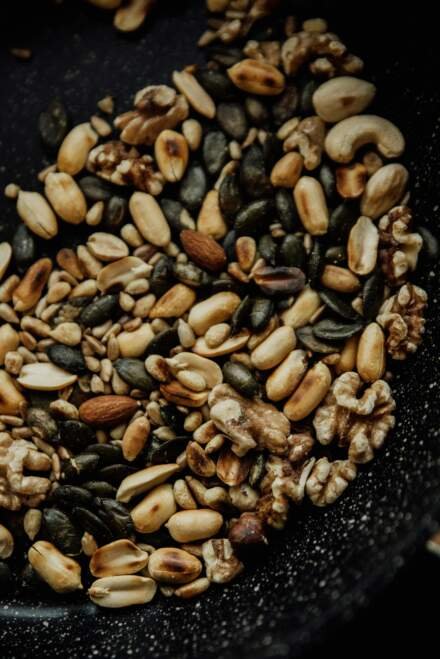Nutritious Foods – In this moment we will tell you some foods that are the most nutritious foods in the world. This nutrient will fulfill the needs of all the organs of your body. Some of these may seem really tasty and some may be tasteless.
What are nutritious foods?
Every fruit or vegetable we eat contains some nutrients. Food is never without nutrients. But some foods are so packed with nutrients that they are considered superfoods. These foods help improve overall health by boosting the weak systems of our body.
UK researchers listed some of these foods in their study. This report discusses some of the world’s most nutritious foods in the light of knowledge

1. In the list of the most nutritious foods, atafal has an alternative position to atafal. It contains sugar, vitamin A, vitamin B1, vitamin B2, vitamin C, vitamin C and potassium.
2. Different types of marine fish, marine kai or poa fish, chital fish, cod fish, eelish, tuna, different types of salmon fish are one of the most nutritious foods. These fish are included in this list for their nutritional value
3. Almost everyone likes to eat fish. But you know, some fish are actually considered the world’s most stylish food description. However, not all fish are as nutritious as salmon and sardines. Both these fishes can cover you from dire situations. Currently, it plays an important role in taking care of the heart or keeping it healthy. You can also help with dementia and Alzheimer’s by eating this fish However, it will cover you from depression or stress If you eat salmon regularly.

4. Nuts

Numerous parcels of nuts. As far as dry fruits are concerned, the most preferred almonds can keep your body exceptionally healthy. Almonds are known to be rich in protein, fiber, calcium, vitamin E, BOB, magnesium and riboflavin. Also, almonds are an excellent source of potassium, selenium, zinc, B vitamins, niacin, thiamin and folic acid. People eat nuts in different ways. Still, eating soaked almonds is considered the most tempting. Nuts give you a variety of amino acids. Which is congratulations for the muscular heart. It is a great weapon against bad cholesterol. Bad cholesterol can be reduced through almonds. Almonds contain calcium and phosphorus that help keep bones strong. Extra selenium protects you from stress. Vitamin E can protect cells from damage. However, if you have diabetes, this is truly a blessing for you. The fiber and protein present in it maintain the sugar level in the body, which is beneficial for diabetic patients.
5. Chia seeds

Do you know about chia seeds? Chia seeds help keep you healthy from many serious conditions. Chia seeds are rich in amino acids and proteins. It is a good source of omega 3 fatty acids, carbohydrates and fiber. These tiny seeds are also packed with calcium and antioxidant parcels. According to research, regular consumption of chia seeds can relieve heart problems. Chia seeds are considered a great substitute for dairy products. Because it contains a lot of calcium. This is also allowed. To be effective in controlling the presence of sugar in the blood
6. Walnut

Do you know about chia seeds? Chia seeds help keep you healthy from many serious conditions. Chia seeds are rich in amino acids and proteins. It is a good source of omega 3 fatty acids, carbohydrates and fiber. These tiny seeds are also packed with calcium and antioxidant parcels. According to research, regular consumption of chia seeds can relieve heart problems. Chia seeds are considered a great substitute for dairy products. Because it contains a lot of calcium. This is also allowed. To be effective in controlling the presence of sugar in the blood
7. Sap
Sap and sap sap are high in protein, carbohydrates, fiber, minerals and answerable vitamins. The list also includes a variety of bean sprouts.
8. Onion leaves

Onions with leaves Onion leaves contain antioxidants. Different types of onion flowers along with leaves and its tips are rich in vitamins. It is especially good source of vitamin A and vitamins.
9. Cabbage

Cabbage is a leafy vegetable that belongs to the Brassica family, which also includes broccoli, cauliflower, and Brussels sprouts. Known for its versatility and nutritional benefits, cabbage is a staple in many cuisines around the world. It comes in several varieties, including green, red, and Savoy cabbage, each with its unique flavor and texture.
One of the most notable aspects of cabbage is its rich nutritional profile. It is low in calories, making it an excellent choice for those looking to maintain or lose weight. Despite its low calorie content, cabbage is packed with essential nutrients. It is particularly high in vitamin C, an antioxidant that supports the immune system and skin health. Additionally, cabbage is a good source of vitamin K, which is crucial for blood clotting and bone health.
Cabbage is also a great source of dietary fiber, which aids in digestion and promotes a feeling of fullness. This can help in managing weight and preventing overeating. The fiber in cabbage also supports gut health by feeding beneficial bacteria in the digestive system.
In addition to vitamins and fiber, cabbage contains important minerals like calcium, potassium, and magnesium. Calcium is essential for strong bones and teeth, while potassium helps regulate blood pressure by counteracting the effects of sodium. Magnesium plays a vital role in muscle and nerve function.
Cabbage can be consumed in various ways, including raw in salads, fermented in dishes like sauerkraut and kimchi, or cooked in soups, stews, and stir-fries. Each preparation method can slightly alter its nutritional content, but the benefits remain significant.
Moreover, cabbage contains compounds known as glucosinolates, which have been studied for their potential cancer-fighting properties. These compounds may help reduce the risk of certain types of cancer by supporting the body’s detoxification processes.
In summary, cabbage is a highly nutritious vegetable that offers a wide range of health benefits. Its high vitamin C and K content, along with its fiber, minerals, and potential anti-cancer properties, make it an excellent addition to a balanced diet. Whether eaten raw, cooked, or fermented, cabbage is a versatile and valuable food that can contribute to overall health and well-being.
10. Chili

Chili peppers are widely used in cooking for their distinctive heat and flavor. These fiery fruits are packed with capsaicin, the compound responsible for their spiciness, which can also boost metabolism and aid digestion. Chili peppers come in various forms, from mild bell peppers to the intensely hot habaneros, making them versatile in different dishes.
Besides their kick, chili peppers are rich in vitamins like vitamin C, supporting the immune system, and vitamin A, which is good for vision. Their antioxidant properties also contribute to overall health. Used fresh, dried, or as a powder, chili peppers are a global culinary favorite.
11. Mint leaves

Mint leaves are a popular herb known for their refreshing aroma and cool, crisp taste. They are commonly used in both culinary and medicinal applications. Rich in vitamins A and C, as well as antioxidants, mint leaves support overall health and well-being.
In cooking, mint is used to flavor a variety of dishes, from salads and sauces to desserts and beverages. It’s also a key ingredient in drinks like mint tea and mojitos. Beyond its culinary uses, mint has soothing properties that can aid digestion, freshen breath, and provide relief from headaches and nausea.
12. Mustard plant

The mustard plant is a versatile crop known for its seeds, leaves and oil. Mustard plant Mustard plant contains a substance called sinigrin. Its seeds are used to make mustard spice or in cooking for their sharp, tangy flavor. The leaves, known as mustard greens, are rich in vitamins A, C and K and can be eaten raw in salads or cooked.
Mustard oil, extracted from the seeds, is widely used in cooking and has antimicrobial properties. The plant also contains compounds such as glucosinolates, which have potential health benefits, including cancer prevention. Mustard plants are easy to grow and are a staple in many global cuisines.
13. Lettuce leaves
Lettuce leaves are a popular leafy green vegetable, often used in salads and sandwiches. They are low in calories but high in water content, making them a hydrating and refreshing choice. Lettuce comes in several varieties, including romaine, iceberg, and butterhead, each offering a slightly different texture and flavor.
Nutritionally, lettuce is a good source of vitamins A and K, which support vision and bone health, respectively. It also contains small amounts of fiber, aiding in digestion. Lettuce leaves are versatile, adding a crisp, fresh element to many dishes, and are a staple in healthy eating.
14. Banana

Bananas are a widely loved fruit, known for their sweet taste and convenient portability. Rich in potassium, bananas help regulate blood pressure and support heart health. They are also a good source of vitamins C and B6, which boost immunity and brain function.
Bananas are easy to digest and provide quick energy, making them a popular choice for athletes and those needing a healthy snack on the go. The natural sugars in bananas, combined with fiber, help maintain stable blood sugar levels. Whether eaten on their own, sliced into cereals, or blended into smoothies, bananas are a nutritious and versatile fruit.
15. Tomato

Tomatoes are a versatile and widely used fruit, celebrated for their juicy texture and rich flavor. They are a key ingredient in countless dishes, from salads and sauces to soups and salsas. Nutritionally, tomatoes are packed with vitamins C and K, and they are an excellent source of antioxidants, particularly lycopene, which supports heart health and may reduce the risk of certain cancers. Tomatoes also contain fiber, which aids digestion, and are low in calories, making them a healthy addition to any diet. Whether eaten fresh, cooked, or processed into products like ketchup and pasta sauce, tomatoes are a staple in kitchens around the world.
16. Pomegranate

Pomegranates are a nutrient-rich fruit known for their vibrant red seeds and sweet-tart flavor. Each pomegranate is packed with antioxidants, particularly punicalagins and anthocyanins, which support heart health and reduce inflammation. The fruit is also an excellent source of vitamin C, boosting the immune system, and dietary fiber, aiding in digestion.
Pomegranate seeds, also known as arils, can be eaten on their own, added to salads, or used in juices and desserts. The juice is particularly popular for its refreshing taste and health benefits. Pomegranates are not only delicious but also contribute to overall well-being.
Also on the list of the most nutritious foods are sweet potatoes, dried dates, carrots, kachushak, broccoli, cauliflower, oranges and limes.
String food

Stringy foods are foods that have a fibrous texture, often due to the presence of long, tough strands of plant fiber. Common examples include celery, asparagus, and certain types of meat, such as brisket or pulled pork, when cooked in certain ways. These foods can be a bit challenging to chew, but they provide unique textures and flavors that many people enjoy.
Include enough string grains in your diet. Especially for breakfast, cereal can include a variety of cereals, wheat, slush, fruit, and yogurt. It fills the stomach uncontrollably and keeps the stomach clean, i.e. relieves constipation. But fruit means apples, not grapes but when that fruit is available, that means eat seasonal fruit. It also increases immunity.
Stringy vegetables like celery are rich in dietary fiber, which is beneficial for digestion and can help maintain a healthy weight by promoting feelings of fullness. The fibrous nature of these foods supports healthy teeth and gums by encouraging more chewing.
In some cases, the firmness of the food can be reduced by cooking or cutting it into smaller pieces. While some string foods may seem less appealing, they often bring valuable nutrients and texture to a balanced diet.
Fresh fruits and vegetables
Fresh fruits and vegetables are essential for the body’s health, rich in vitamins, minerals and antioxidants that support overall health. They are low in calories and high in fiber, which aids digestion, increases satiety and helps maintain a healthy weight. The natural sugars in fruit provide quick energy, while the nutrients in vegetables aid in muscle recovery and reduce inflammation. Regular consumption of a variety of fresh produce strengthens the immune system, improves heart health, and increases the vitality of skin and hair, making them the foundation of a balanced diet for optimal fitness.
According to the World Health Organization, vegetables and fruits should be eaten several times a day. People who eat more fruits and vegetables also have a lower risk of asthma or asthma.
Fast Food’ or ‘Store
Shop-made ‘fast food’ or ‘store’ food should not be eaten at all. They contain a lot of sugar and a variety of dangerous substances.
When it comes to body fitness, choosing fresh, store-bought foods over fast food is key to achieving your goals. Fast food is often high in unhealthy fats, sugars and sodium, leading to weight gain, lethargy and poor health. In contrast, store-bought ingredients such as lean protein, whole grains, fruits, and vegetables provide essential nutrients that fuel your body, support muscle growth, and aid recovery. Preparing meals at home allows you to control portions and ingredients, ensuring a balanced diet that aligns with your fitness goals and promotes long-term wellness.
Food for the brain.
Foods that nourish the brain are essential for body health and overall well-being. Nutrient-rich options like fatty fish (salmon, mackerel) provide omega-3 fatty acids, which support cognitive function and reduce inflammation. Greens like spinach and kale contain antioxidants and vitamins that protect brain cells and improve memory. Nuts and seeds, rich in vitamin E, help prevent cognitive decline, while berries, high in antioxidants, promote brain health by reducing oxidative stress. Whole grains provide sustained energy, increase focus and mental clarity, making these foods essential for brain and body health.
Milk or milk products
Milk should be included in daily diet. Still, many people today cannot directly consume milk due to reluctance. Milk and milk products are excellent sources of essential nutrients that contribute significantly to the health of the body. Rich in high-quality protein, they support muscle growth and repair, making them ideal for active individuals and those involved in strength training. Milk is also a key source of calcium, which is essential for strong bones and teeth, reducing the risk of fractures and osteoporosis as you age.
In addition to calcium, dairy products such as yogurt and cheese provide important vitamins and minerals, including vitamin D, which aids calcium absorption and bone health. Yogurt, in particular, contains probiotics, which promote a healthy gut, improving digestion and absorption of nutrients – both important for maintaining optimal body fitness.
Carbohydrates in milk provide a quick source of energy, helping to replenish glycogen stores after exercise. Low-fat or fat-free milk alternatives provide these benefits while keeping saturated fat intake in check, aligning with a heart-healthy diet.
Including milk and its products in a balanced diet can increase overall fitness by supporting muscle function, bone strength and digestive health, making it a valuable component of a nutritional plan aimed at maintaining and improving physical fitness.
Benefits of tamarind, garlic, onion for the body
Tamarind, garlic and onion are powerful natural ingredients that provide various health benefits to the body and can be considered as part of a balanced diet.
Tamarind is rich in antioxidants, vitamins and minerals. It aids digestion, and acts as a natural laxative. Tamarind is also known for its anti-inflammatory properties, which help reduce inflammation and protect against chronic diseases. Additionally, its high vitamin C content boosts immunity and promotes healthy skin.
Garlic is famous for its medicinal properties, especially its ability to improve heart health. It contains allicin, a compound that helps lower blood pressure and cholesterol levels, reducing the risk of heart disease. Garlic has antimicrobial and immune-boosting effects, making it effective in fighting infections and improving overall health.
Onions contain antioxidants like quercetin, which help fight inflammation and support heart health by lowering blood pressure and cholesterol. Onions also contain sulfur compounds that have anti-cancer properties and promote detoxification. Their prebiotic fibers support a healthy gut by nourishing beneficial bacteria, improving digestion and boosting the immune system.
Including tamarind, garlic, and onion in your diet can improve overall health, supporting everything from heart function to digestion and immune defense.
Swabs for the body – effects of sugar
Swabs for the body are harmful to your body and can have a profound effect on overall well-being. High sugar consumption is linked to a variety of health problems, including weight gain, obesity and an increased risk of type 2 diabetes. When you consume too much sugar, your blood sugar levels spike and crash, causing fatigue, irritability, and cravings for more sugary foods.
Excess sugar also contributes to inflammation, which can worsen conditions like heart disease and arthritis. It promotes the production of harmful fats in the liver, which leads to fatty liver disease and increases the risk of cardiovascular problems. Additionally, sugar can weaken the immune system, making you more susceptible to infections.
By reducing sugar intake and choosing nutrient-dense options like fruit, nuts and whole grains, you can stabilize blood sugar levels, maintain a healthy weight and improve energy levels. These swaps support better heart health, reduce the risk of chronic disease, and increase mental clarity. Over time, reducing sugar helps your body work more efficiently, increases longevity and contributes to a healthier, more balanced lifestyle.
Chew food slowly
Chewing food slowly offers significant benefits to the body, improving both digestion and overall health. When you take your time chewing, food breaks down more effectively, allowing the enzymes in your saliva to begin the digestion process properly. This leads to better nutrient absorption, as smaller food particles are easier for your stomach to process.
Eating slowly helps control weight by giving your brain time to register fullness, reducing the likelihood of overeating. This mindful approach to eating can prevent digestive discomforts, such as bloating and Indigestion that often result from eating too quickly.
Additionally, slow chewing improves oral health, as it stimulates saliva production, which helps protect teeth from decay and reduces the risk of gum disease. By practicing eating slowly, you can improve digestion, maintain a healthy weight, and support overall wellness.
Walking
Walk for 30 minutes to 1 hour every day. Apart from the movement of arms and bases, it will also enjoy the open air, which plays a huge role in staying ‘fit’. Better to have someone by your side while walking, otherwise walk alone for a while. Come back and see how both body and mind feel. Walking or exercise also helps to increase the body’s immune system




Leave a Comment